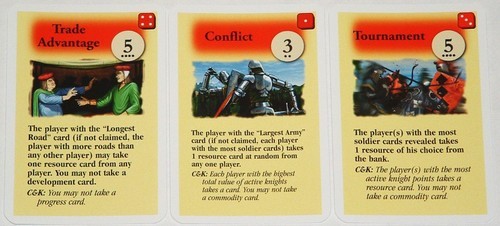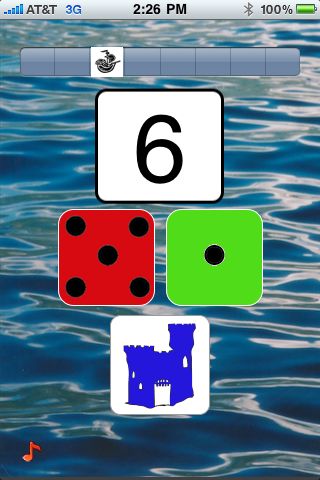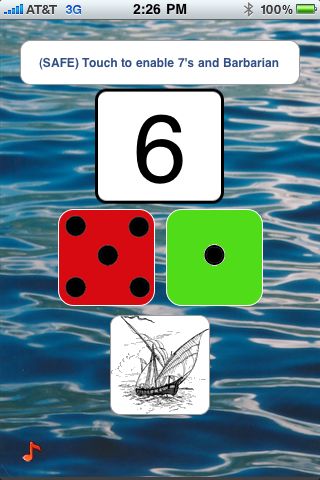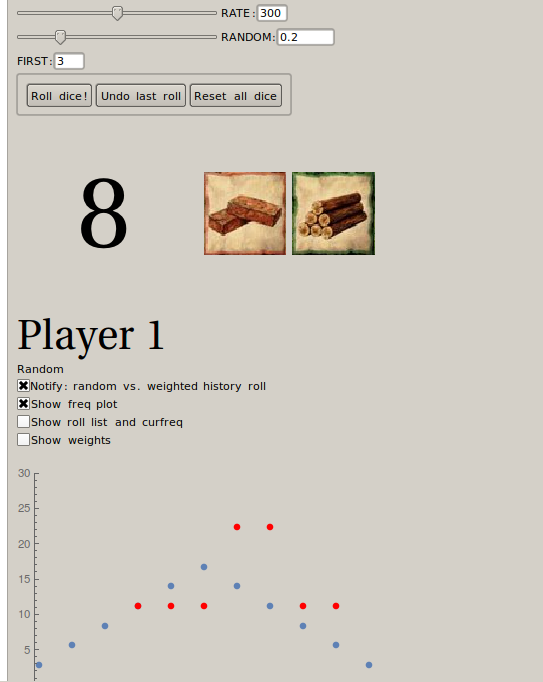We tried a variant where the amount of resources are produced according to the probability of the dice roll that would produce this resource.
Say you've got an "8" and "3" on ore and a "12" on wood. Each players turn, after the dice roll (for bandit, barbarians and C&K) resources are produced in this way:
to roll an "8" with two dice the probability is: 5/36, for a "3" it's 2/36 and for a "12" it is 1/36.
So in each players turn you would receive 5 + 2 ore and 1 wood marker. If you reach 36 you immediately discard 36 markers and gain one card. This needs a lot of administration, but makes the resource management more planable and cuts off a litte from the importance of settlement/city placement.
If a bandit enters a resource field, all players with a city or settlement adjacent to that field loose all their markers for that resource. Other bandit rules still apply.
You can do a similar version with development cards, where you have to gather development points according to your progress in this area of development (two for the first, one for each one after the first), but this leads to very fast or very slow developments, depending on the number of players. You would have to set the necessary development points to 36 to have the same average in developments as with dice.
With barbarians and the bandit this works too.
However we found that especially with development, barbarians and bandit, the randomness makes the game more exciting than annoying. So we roll the dice as usual, ignore resource production and carry out just the events development, barbarians and bandit.
If you cut out all randomness (exept for the player influence) some strong players did manage to think ahead a number of turns and act accordingly, which left weaker or inexperienced players no chance.




